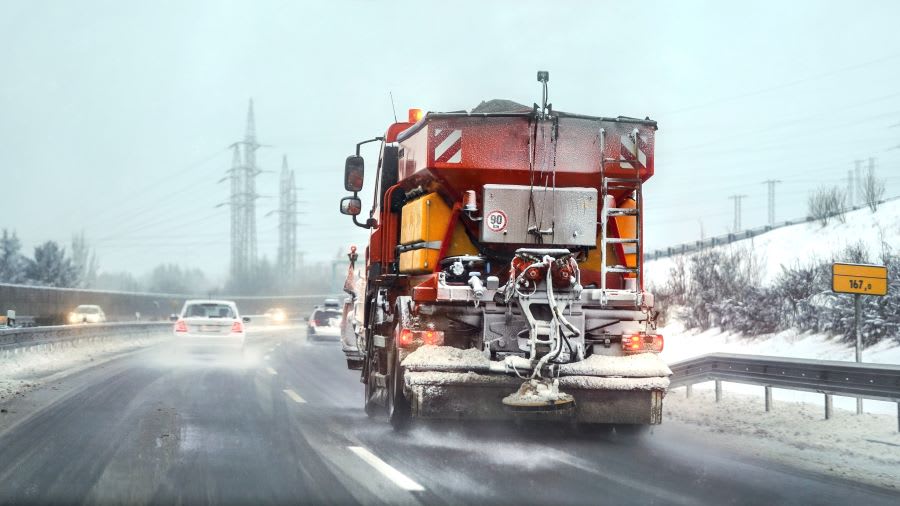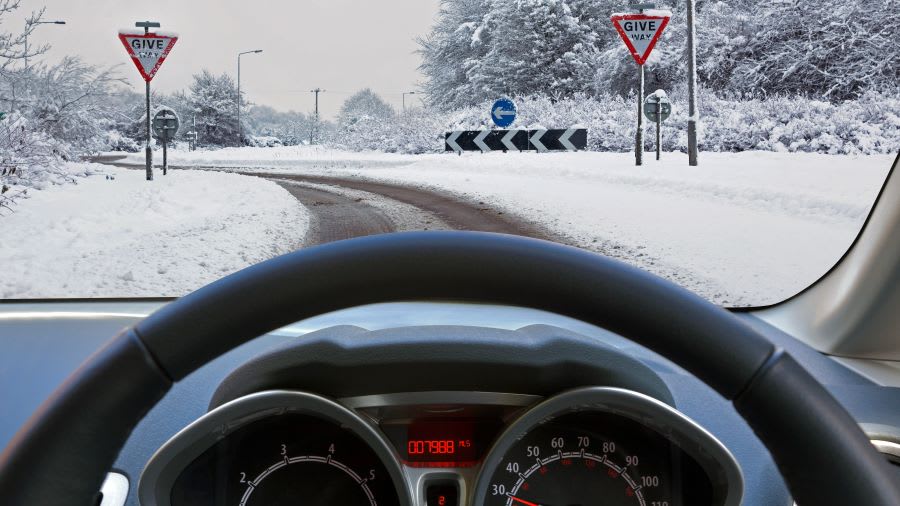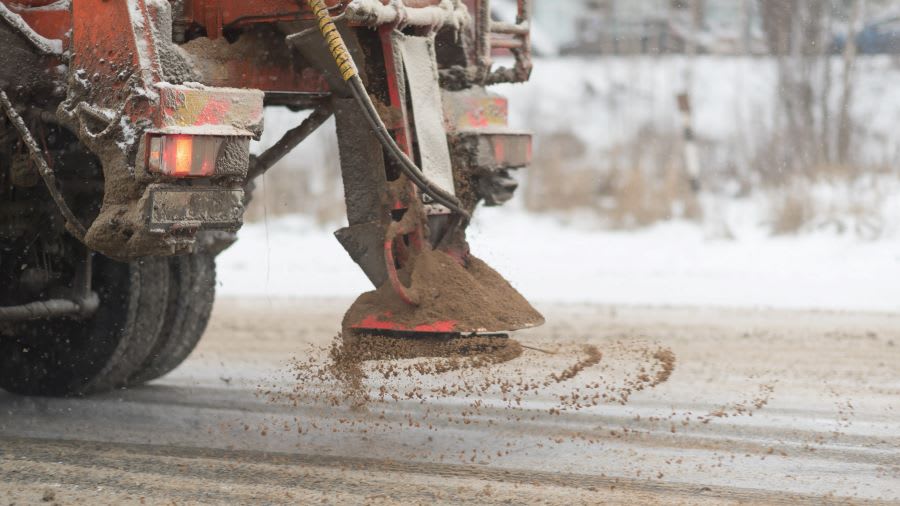The salt-spreading trucks will be a common sight over the next few months as local authorities aim to reduce the impact of snow and ice on the nation’s roads.
But experts have revealed that while they carry out an important service in keeping people moving when temperatures plunge to below freezing, they can also cause problems to things such as paintwork, radiators and even headlights.
That’s as well as having the potential to create longer-term issues by corroding metalwork.

Graham Conway, Managing Director of the UK’s leading vehicle leasing company Select Car Leasing, said:
“Gritting is a part of life in the UK during this time of year, especially in Scotland, northern England and roads on higher ground. It’s vital in keeping the nation moving when snow and icy conditions do their best to snarl up the highways. But it’s worth taking note of some of the problems it can cause, to ensure you protect your vehicle against them.”
According to the Local Government Association website, UK local authorities are responsible for around 225,000 miles of road and on average grit around 41 per cent of them.
They don’t tackle them all due to financial factors and because “many roads are simply too narrow or too steep for a gritting lorry to navigate”.
It’s estimated that 1.4 million tonnes of grit was ordered in preparation for this year’s “gritting season”, at a cost of around £40 per tonne.

The substance used is a combination of rock salt, or Sodium Chloride, which acts as a de-icer, and a smaller percentage of an insoluble rock such as marl which adds extra grip to the road surface.
But while it does a good job of making frozen roads less slippery, it can cause a number of car-related issues.
Mr Conway said:
“Because of the nature of the grit, the stones can flick up off the road surface and scratch paintwork. If you are driving directly behind a gritter when it is spreading, this can be much worse. If it does cause scratches and small dents in the paintwork, or if there are any existing imperfections, the salt can seep in and lead to corrosion and rust if not cleaned off."
A number of motorists on the popular Pistonheads forum have highlighted how grit has left them with unwanted repair bills.
One revealed how he was left with a cracked windscreen, while another wrote:
“(A) few years ago (I) passed a gritter, all good, (then) two miles down the road car overheats due to (a) burst radiator – big piece of grit lodged in it!”
Cracked headlights were another problem highlighted by UK motorists on the discussion boards.
As well as avoiding driving too close to gritters, Mr Conway advised not going out onto the roads when the spreading is most likely to occur – generally between 9-12pm the night before snowfall or dramatically falling temperatures are forecast.

The Select Car Leasing expert added:
“It’s a good idea to wash your car as often as possible to get rid of any salt residue on the bodywork. Concentrate on wheel arches as they are a hotspot for the accumulation of grit.
“And don’t forget to give your tryes a good clean as well. They will pick up lots of salt and grit, then throw it up underneath the vehicle which can cause longer lasting damage to unseen parts. Another good tip is to wax your car which will give the paintwork an extra layer of protection against the potential damage caused by the salt.”
Enjoyed this? Read more of our industry insights:
-
International Women's Day 2022: Sarah Gatley
-
High performance electric Roadster revealed by Polestar
-
New March 22 plate is here, but do you understand the system?
-
New updates for BMW 2 Series
-
Jeep’s first fully-electric SUV revealed
Where To Next?
For all the latest reviews, advice and new car deals, sign up to our newsletter.
Looking for a great deal? Check out our incredible range of car lease deals.
Read our latest reviews and find the right model for you.
Want to know more about hybrid and electric leasing? Take a look at our comprehensive leasing guides.
Interested in everything motoring? Why not catch up on all the latest car leasing news.
















